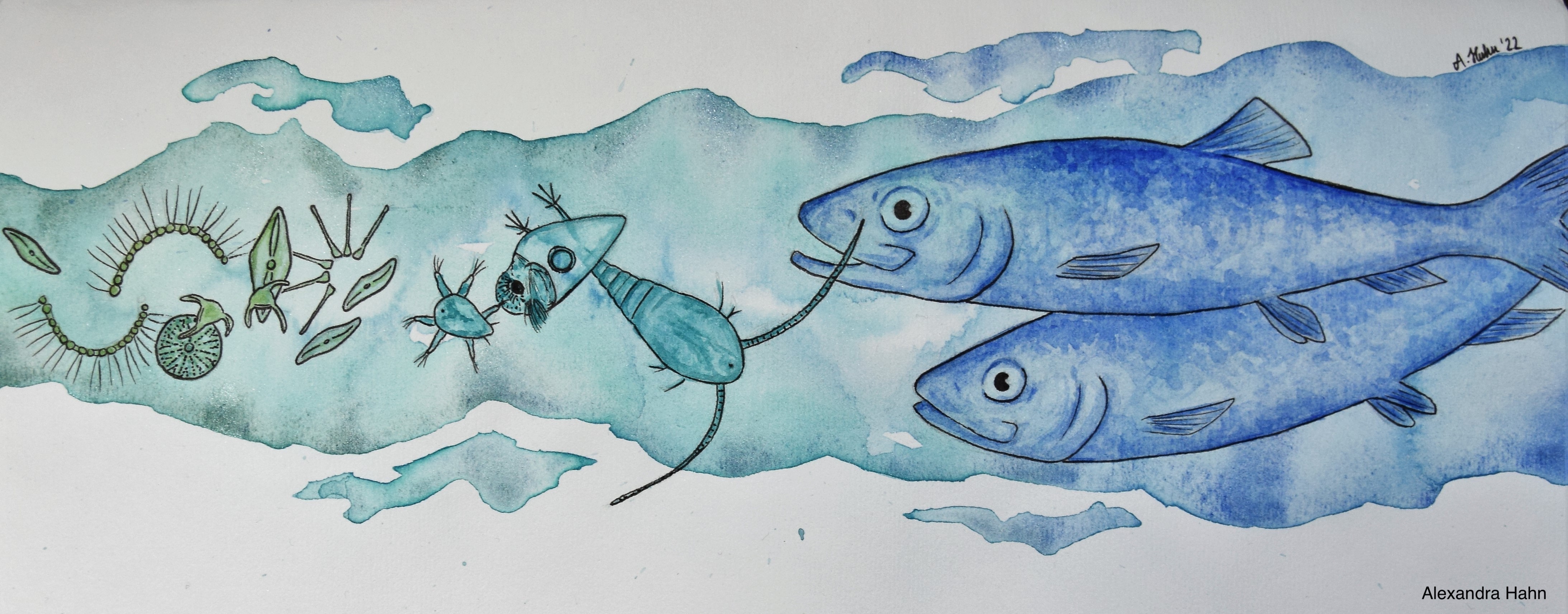
The marine ecological and evolutionary genomics group at GEOMAR seeks to understand how species rapidly evolve across environmental and temporal gradients and in response to changing environments due to human driven global change. We focus on marine zooplankton and fish and use diverse approaches including physiological, transcriptomic, and population genomics to investigate the mechanistic and evolutionary underpinnings of ecologically relevant traits. Together, we hope that our research can contribute to helping sustain resilient populations and ecosystems in addition to helping futher our understanding of evolutionary processes.
We are particularly interested in leveraging the interesting aspects of natural systems, such as salinity and temperature gradients, along with techniques such as experimental evolution in the lab to understand adaptive processes.
Susceptibility and resilience to global change
As the environment rapidly changes due to human causes, it is essential to understand how populations may respond. These responses can consist of adaptation, plasticity, or a combination of the two (in addition to migration or extinction). We use a variety of approaches to predict the relative impact of these different mechanisms to determine if and how ecosystems may be resilient to global change.
experimental evolution
One method to determine if evolutionary rescue can help populations respond to changing climates is experimental evolution. Using marine copeppods, we conduct multi-generational lab based experimental evolution studies under multiple stressor conditions. In this work we are particularly interested in understanding:
- Do species have the capacity to evolve to predicted, multip-stessor future conditions?
- How do adaptation and plasticity interact and affect one another during evolutionary rescue?
- Are there costs associated with rapid adaptation?
See the video below for a brief summary of some of this past work.
Predictions of local adaptation and susceptibility to global change
To effectively manage species, it is fundamental to be able to make predictions concerning the susceptibility of populations to predicted future conditions. One particularly promising method to do this is genomic vulnerability, or predictions of susceptibility using only patterns of genetic variation in the wild. With funding from the DFG, we are quantifying the degree of local adaptation and predicting and testing the genomic vulnerability of the copepod Acartia tonsa across the Baltic Sea. This work will help further our ability to make accurate predictions of susceptibility of populations to ongoing changing conditions. Alexandra Hahn is leading this work.
Temporal genomics and fluctuating selection
Populations regularly experience huge environmental fluctuations across time, both within and across years. These seasonal fluctuations likely contribute to the maintenance of adaptive genetic variation. We might also predict that this same adaptive genetic variation would contribute to global change adaptation, particularly for stressors such as temperature.
Ongoing work in the lab is focusing on seasonal changes in body size (Gianina Consing), temperature tolerance (Sophia Bach and Alexandra Hahn), and allele frequencies across multiple species of marine copepods through time (Incoming postdoc Jenny Nascimento-Schulze)
We are leveraging temporal samples of multiple zooplankton species from 2005 to present to determine if there is consistent fluctuating selection due to seasonal fluctuations across years. We are also interested if temperature changes through time might be driving directional selection at these same loci. Ongoing and planned experimental work will further determine the extent to which adaptation to fluctuating and increased future temperatures relies on these same loci under fluctuating selection.